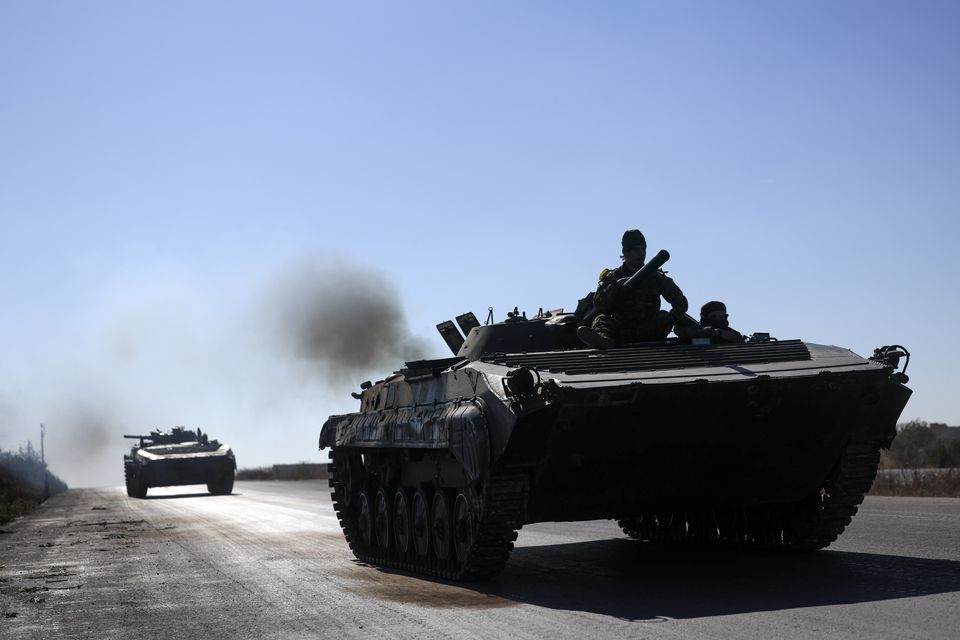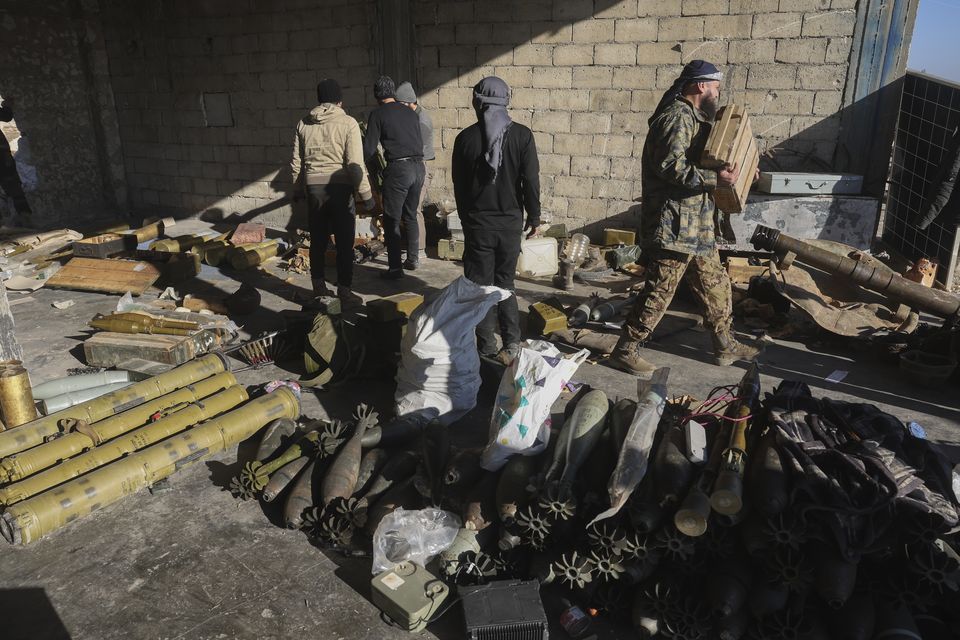Iranian-backed Iraqi militias have deployed in Syria to back the government’s counter-offensive against a surprise advance by insurgents who seized the largest city of Aleppo last week, officials said.
Insurgents led by jihadi group Hayat Tahrir al-Sham launched a two-pronged attack on Aleppo and moved into the countryside around Idlib and neighbouring Hama province.
The push is among the rebels’ strongest in years and raised the prospect of another violent front reopening in the Middle East, at a time when US-backed Israel is fighting Hamas in Gaza and Hezbollah in Lebanon – both Iranian-allied groups.
It also risks drawing Russia and Turkey – each with its own interests to protect in Syria – into direct confrontation.
The Syrian opposition insurgency launched a two-pronged attack on Aleppo and the countryside around Idlib (AP)
Government troops built a fortified defensive line in northern Hama in an attempt to stall the insurgents’ momentum while jets pounded rebel-held lines on Sunday.
On Monday, Syria’s military said that their air strikes alongside Russia’s killed 400 insurgents over the past 24 hours. It said that government forces were mobilising to encircle the rebels in the countryside of Aleppo, Hama, and Idlib.
In a phone call with Syrian President Bashar Assad, Iranian President Masoud Pezeshkian said Tehran was willing to provide all the support needed to push back the insurgency.
He echoed comments from Iran’s top diplomat Abbas Araghchi, who visited Mr Assad on Sunday before traveling to Turkey – one of the rebels’ main backers.
Iran has been one of Mr Assad’s principal political and military supporters and has deployed military advisers and forces after 2011 protests against Mr Assad’s rule turned into an all-out war.
Tehran-backed Iraqi militias already in Syria mobilised and additional forces crossed the border to support Mr Assad’s government and army, said the Iraqi militia official.
The rebels are backed by Turkey (AP)
According to the UK-based opposition war monitor the Syrian Observatory for Human Rights, some 200 Iraqi militiamen crossed into Syria overnight through the strategic Bou Kamal crossing.
They were expected to deploy in Aleppo to support the Syrian army’s pushback against the insurgents, the monitor said.
The rebel offensive in Syria has caused concern among neighbouring countries that the conflict could spill over. In Iraq, Interior Ministry spokesperson Brig Gen Miqdad Miri said that security forces have deployed in greater numbers to protect their large border with Syria.
The advance by the insurgents is a huge embarrassment for Mr Assad, and it comes at a time when his allies – Iran and the groups it backs, and Russia – are preoccupied with their own conflicts.
Russia, whose intervention in Syria’s civil war on behalf of Mr Assad was crucial in turning the conflict in his favour, has said it will continue to support him.
Kremlin spokesman Dmitry Peskov told reporters on Monday: “We, of course, continue to support Bashar Assad, we continue our contacts at the appropriate level and analyse the situation.
We need your consent to load this Social Media content. We use a number of different Social Media outlets to manage extra content that can set cookies on your device and collect data about your activity.
“A position will be formed regarding what is needed to stabilise the situation.”
Syrian and Russian air strikes on rebel positions continued mostly in Hama and Idlib provinces. At least 10 civilians were killed in Idlib city and province, according to the Syrian Civil Defence in opposition-held areas.
Syrian Kurds were fleeing the fighting in large numbers after Turkish-backed rebels seized Tel Rifaat from rival US-backed Kurdish authorities.
The Kurdish-led Syrian Democratic Forces largely withdrew and called for a humanitarian corridor to allow people to leave safely in convoys toward Aleppo and later to Kurdish-led north-eastern regions.

